I am opening an audio file to read it and I get an abandoned malloc block from this caller each time.
In a loop I set data like this (which is marked as the memory usage in instruments as 99.7%) data = (short*)malloc(kSegmentSize*sizeof(short));
and free it like this free(data); at the end of each iteration.
Im not really sure what is happening here and would appreciate any help.
EDIT: KSegmentSize varies in the thousands, from minimum 6000 - max 50000 (speculative)
Instruments trace:

